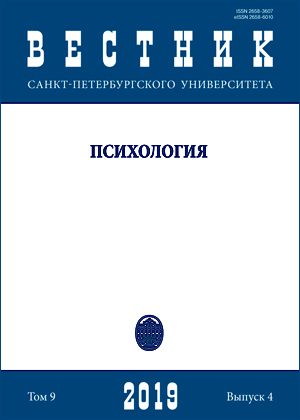Дистресс у женщин: до и после родов
DOI:
https://doi.org/10.21638/spbu16.2019.406Abstract
The article reveals the specifics of distress of women in the dynamic for during pregnancy and after childbirth. The study analyzes and describes the data collected for 86 women. Methods based on the transactional theory of stress were used to accomplish scientific tasks. The hypothesis was supported that pregnancy for modern women is accompanied by lasting distress. Not only personal, but also environmental (family) factors are involved in creating distress. The results of measurement demonstrate a statistically significantly higher level of distress in contrast to the period after childbirth. Statistically significant changes for all coping-strategies, with the exception of the strategy “self-control which remains at the level initially measured,” were demonstrated. Correlation analysis showed that the level of perceived stress had high significant correlations (besides scale “phobias”) with every scale of the symptom questionnaire. Perceived stress was also connected with such a coping-strategy as “avoidance” and with the personal trait “emotional stability,” but there was a reverse (negative) correlation. The significant results obtained should be considered, especially in regards to the psychological accompaniment of pregnant women.
Keywords:
pregnancy, distress, personality traits, symptoms, perceived stress, coping-strategies, type of relation to pregnancy, dynamics of psychological data
Downloads
References
References
Downloads
Published
How to Cite
Issue
Section
License
Articles of "Vestnik of Saint Petersburg University. Psychology" are open access distributed under the terms of the License Agreement with Saint Petersburg State University, which permits to the authors unrestricted distribution and self-archiving free of charge.




